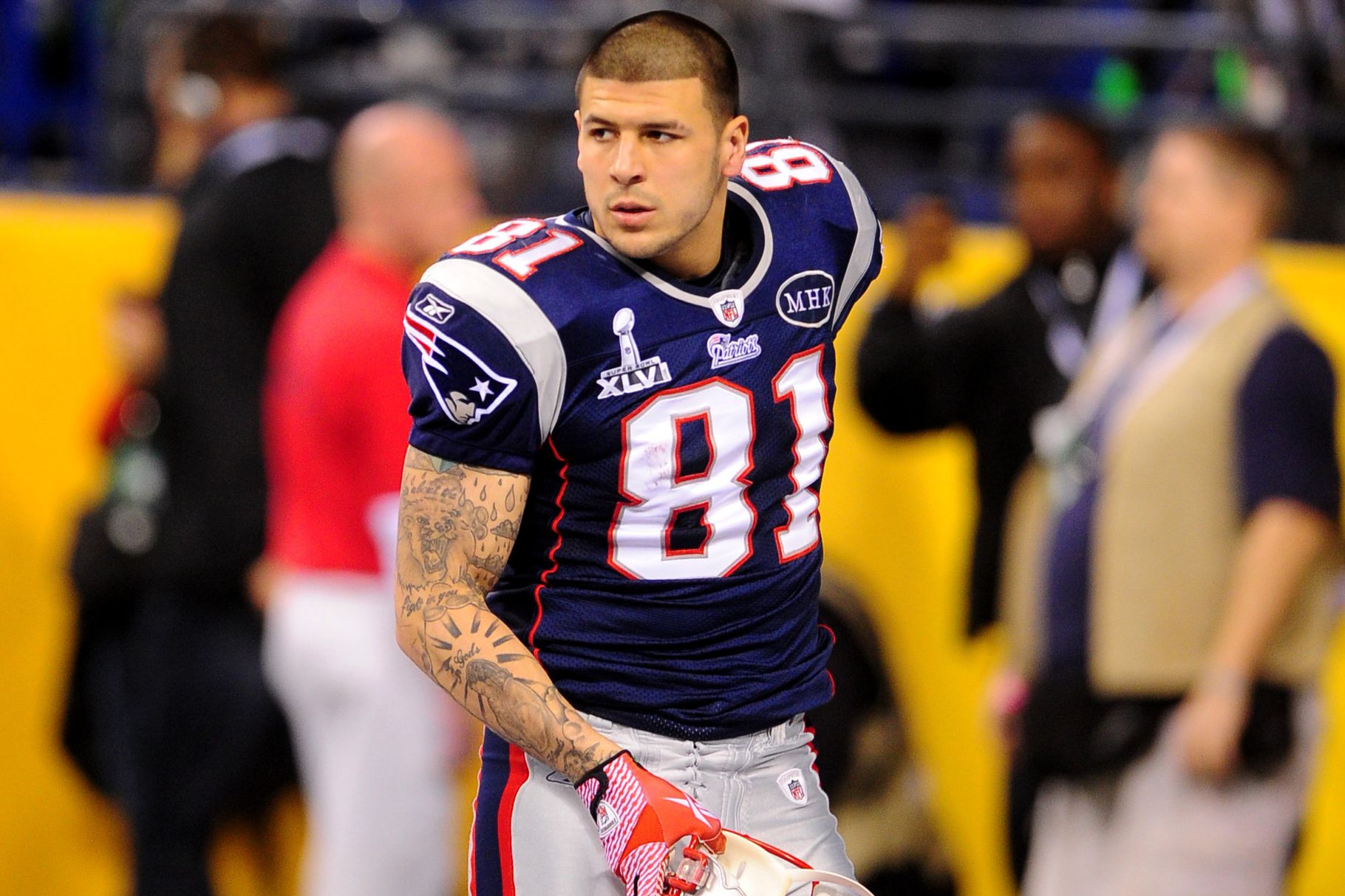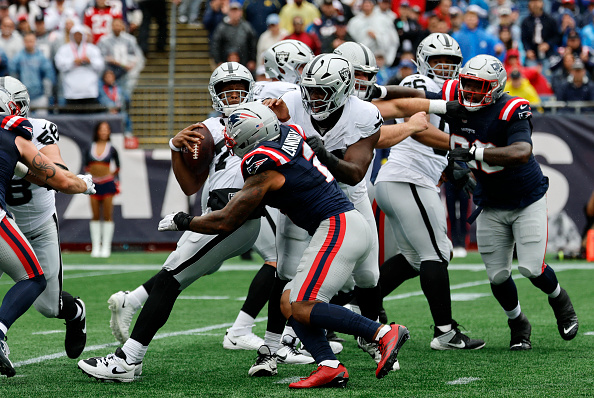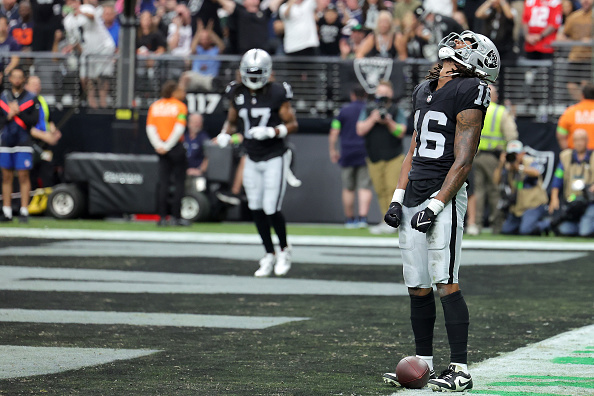In the greater New England area, fans of the Red Sox, Celtics, Bruins, and Patriots put their players on pedestals. Whether it be a homegrown player like a quarterback drafted in the sixth round with six Super Bowl championships or someone brought over from another team (say, the Minnesota Vikings) after already being all but a lock for the Hall of Fame, they are idolized.
One name who was just that for a brief time before becoming the most despised is one the Patriots’ organization and their fans would rather not talk about: Aaron Hernandez.
New England picked the tight end in the fourth round of the 2010 draft at No. 113 overall, just two rounds after they selected Rob Gronkowski at No. 42 overall.
Almost immediately, they became the greatest tight end duo the league had ever seen. After their first two seasons, they combined for over 3,300 receiving yards and 40 touchdowns.
The team, prior to the start of just his third season, signed Hernandez to a five-year, $39.58 million contract extension that included $15.95 million guaranteed and a signing bonus of $12.50 million, the largest signing bonus ever received by an NFL tight end. Needless to say, the entire organization liked what they saw in his two-year sample.
It appeared that Hernandez had it all: money, fame, and admiration of not only Patriots fans, but football fans in general. Less than a year later, he threw it all away.
On June 26, 2013, Hernandez was charged with first-degree murder for the slaying of Odin Lloyd. Two years later, he was convicted and sentenced to life in prison. When the verdict and sentence were read, he showed no reaction. No shock, nor sadness, nor anger.
Nothing.
On April 19, 2017, he was found dead in his jail cell, just five days after he was acquitted of the 2012 killings of two other men.
Since then, questions about the behind-the-scenes life of the former tight end have remained unanswered. This is the life not in front of the cameras showing him scoring touchdowns on Sundays.
A Netflix documentary titled Killing Fields, as well as a Discovery Channel two-part series, both debut in the coming weeks. Early reviews claim shocking evidence has been brought to light as to why Hernandez found no choice but to turn to murder. There have been claims that he was reportedly abused and sexually molested as a child which led him to be homosexual.
To date, a motive for the murder of Lloyd was never 100 percent confirmed, but it is widely speculated and believed Lloyd knew that Hernandez was hiding his homosexuality.
Lloyd also had access to his Hernandez’s confidential health records, information the former player did not want to get out.
An assistant district attorney who had the chance to review Hernandez’s medical records during his trial concluded that Hernandez could have been concealing an STD or HIV diagnosis.
Many believe Hernandez’s profession played a role in his paranoia and led him to the unthinkable: committing murder.
A former cellmate also has claimed Hernandez was responsible for another homicide, as Hernandez bragged to him how he assembled a gang to carry out the shooting to kill Lloyd. But they mistakenly killed another man, who reportedly looked similar to Lloyd, in his home. Which in turn led Hernandez no choice but to do it himself.
In the end, there are still many possibilities and unanswered questions. Maybe he was always a thug. Or maybe the money led him to surround himself with the wrong people and gave him feeling above the law. Maybe his deep dark secret and the possibility that it would get out was the lynchpin.
Nonetheless, what started out as a promising NFL career was gone in an instant.
Regardless of the motive, murder is murder no matter how you look at it, even if some people empathize just a little with the reasons that led to it.







